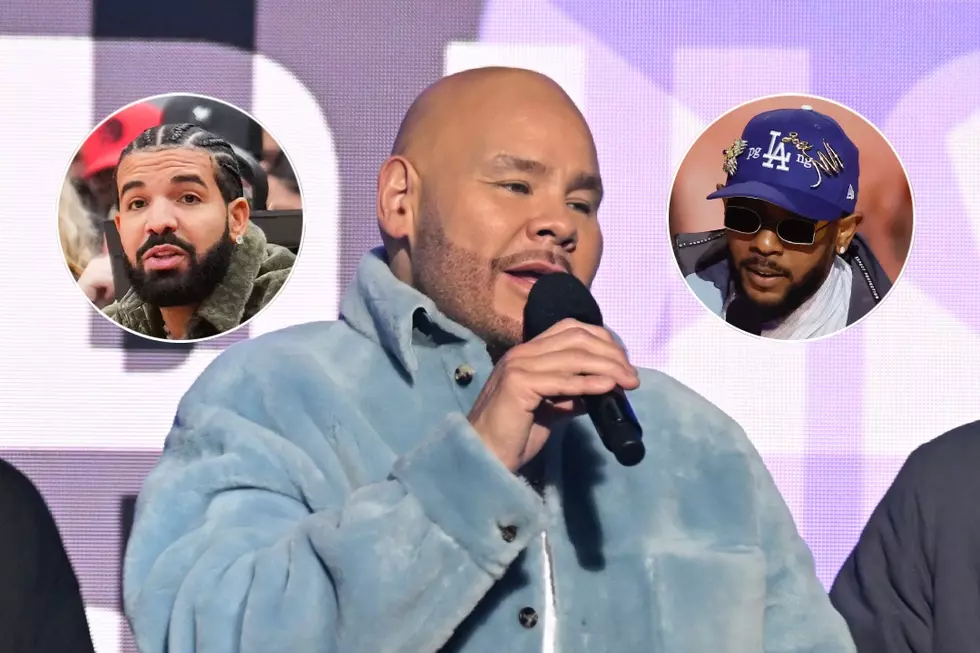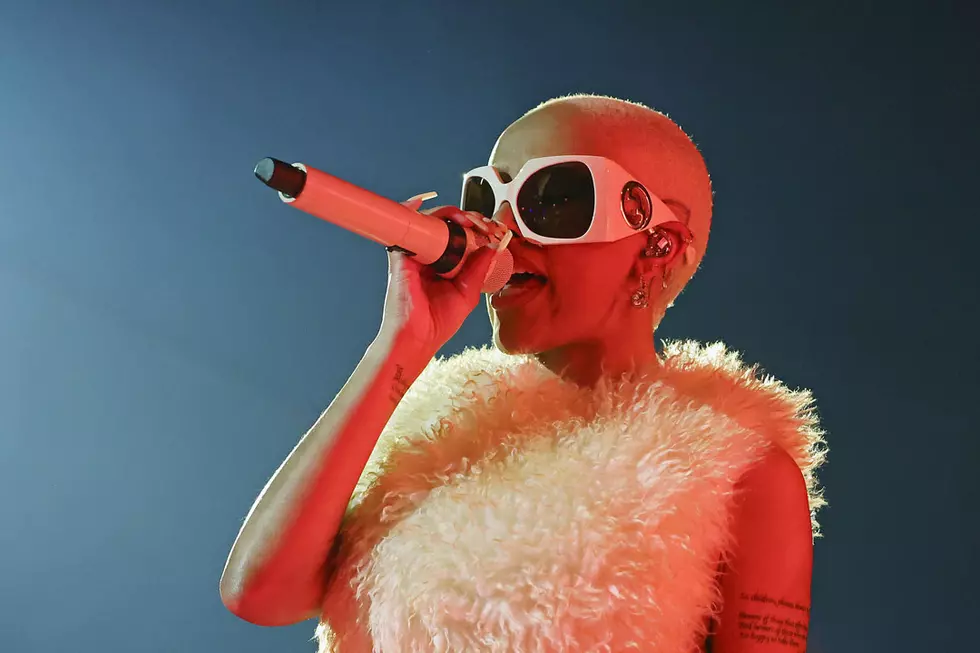Peanut Butter Wolf
Everything I Love
 As the mastermind behind enduring independent rap label Stones Throw, San Jose native Peanut Butter Wolf (née Chris Manak) has devoured the underground with refreshing originality. While he’s best known for overseeing releases from Quasimoto, Madlib and MF Doom—just to name a few—Wolf has a rich history as a producer and DJ himself. Along with his late partner-in-rhyme Charizma, Wolf was originally signed to Disney subsidiary Hollywood Records. But after Charizma died senselessly in 1993, Wolf withdrew from the craft that he loved with a burning passion.
As the mastermind behind enduring independent rap label Stones Throw, San Jose native Peanut Butter Wolf (née Chris Manak) has devoured the underground with refreshing originality. While he’s best known for overseeing releases from Quasimoto, Madlib and MF Doom—just to name a few—Wolf has a rich history as a producer and DJ himself. Along with his late partner-in-rhyme Charizma, Wolf was originally signed to Disney subsidiary Hollywood Records. But after Charizma died senselessly in 1993, Wolf withdrew from the craft that he loved with a burning passion.
Time healed most of his wounds and Wolf was able to jump back stronger than ever, founding Stones Throw in 1996. He marked the label’s genesis with the release of a 12” single by Charizma (which he produced, of course) titled “My World Premier.” Today, the label has climbed to the top of the independent rap heap, forging a partnership with Cartoon Network’s offbeat late-night Adult Swim brand. Yesterday (October 3), Stones Throw and Adult Swim dropped Chrome Children, a compilation that serves as a worthy introduction to the diverse sounds he hocks. XXLMAG.COM spoke with Wolf just before he embarked on an overseas tour about selling albums to cartoon fans, how the deaths of J Dilla and Charizma affected him and striving to be number one in the critics’ eyes.
Watch:
Charizma & Peanut Butter Wolf "Red Light, Green Light" (1992) (CLICK!)
Listen:
Madlib "Take It Back" (Produced by J Dilla)
from Chrome Children (2006)
Partnering with a cable network is pretty unusual for a hip-hop label. How did the partnership come about?
The thing with Cartoon Network is that they’ve given us 100% creative control over the project. They understand that it’s an opportunity to reach people who like our music. Cartoon Network’s audience is more underground and open-minded. I’m really happy with how the [new] project turned out. They contacted us years ago and we’ve been giving them music ever since. In the beginning, we started to give them background music to play in-between their shows. A lot of people don’t really know about the artists that we have on the label. But with this album coming out, this may encourage people to come and get hip.
On the album, there are three songs produced by the late J Dilla. How did his abrupt passing affect you personally and professionally?
Personally, I’d probably want to keep it personal. But professionally, I was frustrated musically because to me, it’s a shame that it would take something like losing your life to have people checking for him [J Dilla]. The people who were fans were die-hard fans before he passed. But a lot of people hopped on the bandwagon after he passed. I mean… I have mixed feelings because the music is out there, but he’s not here. I understand that Dilla was never the one to worry about being in the public eye that much. He wasn’t really trying to force his music on people too much. As far as the media goes, he wasn’t really wrapped up into that as much as he was when it came to doing the music. There are people who never met him who were heartbroken by his passing. It was interesting to see how much of an impact he had on people. His mom really kept all of us strong at the funeral. Even to this day, when I see her, it makes me feel good.
 Was Dilla’s passing reminiscent of your friend Charizma’s?
Was Dilla’s passing reminiscent of your friend Charizma’s?
Yeah, it was. I mean with both situations, it was something that I never predicted. Charizma was 20 years old at the time and I didn’t think that death was around the corner for him. I mean, even though Dilla had his health condition, I would’ve never thought that it would have been that bad. The record came out that Tuesday, on his birthday, and we visited him in the hospital and realized how bad it was. A couple of weeks before his passing, I was over at his house and he was showing me “The Shining,” a new keyboard that he had got, and was talking about a project that we were going to start working on. During Charizma’s passing, I was in a confused state of mind. I was really hurt. Our initial reaction after Dilla’s passing was to cancel the show that we had in San Francisco. I felt like it would’ve been wrong to do. That was the hardest show that I ever had to do. When we did it, I felt so much pressure. It turned out very well in the end. It was a real emotional rollercoaster. His mom even came out for that one! We played Dilla music all night long. My friend, J-Rock, had done something like that at the Donuts party before he died. It was a week before Dilla had passed.
After Charizma’s death, it was reported that you temporarily gave up on music. What did you do during that time and how do you think that hiatus has proved effected your career to this day?
I think at that point…I wasn’t really in the industry. I mean…not to the point to where I’m at now. Charizma and I were doing shows, but we weren’t doing all the interviews. Nowadays, it seems like I don’t really have much time to do much except music. I was numb when I lost Charizma. That was my first experience with losing someone, especially someone that close. When I did turn on the samplers and started making tracks again, I learned that it was helping me cope. It’s similar with Dilla. The music is always the medicine. I think that without music, a lot of us would go crazy.
It seems that for the typical artist, the goal is to be that top-selling dude in the game. When you got started, what were your aspirations?
It wasn’t so much sales-oriented. I wanted to be number one in the critics’ eyes. I still struggle with that. I still want to be appreciated by the critical ear, but a lot of times, those top ten lists come out and we’re not on them and I get down on myself. I just have to realize that at the end of the day, I like what I’m doing. I used to take it a little too serious. I shouldn’t base my life on what others think. That was something that I had learned from Dilla. I heard that he was invited to the Grammy’s and didn’t even go. To a lot of people that puts an emphasis on what people want with their career. People want to be able to have that validation and Dilla could just walk pass it.
You were disillusioned with the music industry when you used to be down with Disney’s subsidiary, Hollywood Records. What keeps you interested in the game now?
Certain individuals, like Madlib. I can listen to him all day long. I’m listening to unreleased stuff from a lot of the artists that are on the label. I go in and out of phases when it comes to listening to the radio. There’s a lot of good Southern bounce and hyphy music out of the West. I love a lot of the early nineties Bay Area music. I’m not a gangbanger or anything like that, but I love it. I grew up listening to ’80s punk rock, so it’s similar. I noticed in Japan that they play 24 hours of the Beatles. They had different stuff throughout their catalog than most of what they play on the radio today. It was interesting to see how vast their work is then, compared to what’s being played now.
 A lot of your acts are known for being experimental. What drives you to keep pushing the boundaries of hip-hop?
A lot of your acts are known for being experimental. What drives you to keep pushing the boundaries of hip-hop?
I personally don’t make a conscious attempt to push the boundaries of music. I have a really short attention span. In high school, I was listening to hip-hop and listened to electronic music. If you listen to Yesterday’s New Quartet, they’re inspired by ’70s Blue Note music. I just love music. I have a huge reggae collection at my house. I don’t personally like country music, but for a long time in high school I didn’t even listen to heavy metal at all. I liked AC/DC but that was about it. There’s a lot of good classical music that I like too.
Stones Throw has become a pivotal underground powerhouse, with artists like Madlib, Yesterdays’ New Quartet, MF Doom, and Quasimoto maintaining loyal fan bases. Do you think that mainstream success is less important than creative integrity?
Everyone is in it for their own reasons. I can’t knock people who want the millions of fans and stuff. If millions of people love our music for what we do, that’s fine. But I love it when people hear about us through word of mouth. We’ll grant interviews and whatnot, but it’s not so much the goal. The Internet has helped us a lot. Hell, the underground period. Satellite radio has given us a breeding ground. It’s almost shifted the mentality of the public. We tour the world. We’re going to Japan and Europe and people actually take the time to check us out. I appreciate that.
More From XXL









